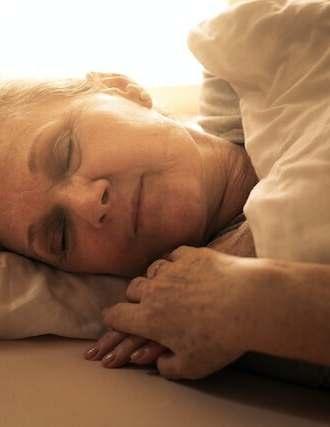
SleepYourWaytoa HealthierBrain DetoxifyYourBedroom: SAMINASleep Braindetoxi�cationonlyhappenswhileyou’re sleeping.It'skeytostavingoffdementiaand Alzheimer's.You'llgetbettersleepforbrainhealth inanon-toxicbedroom.We'llshowyouhow.
Page 1 Detoxify Your Bedroom: Sleep Your Way to a Healthier Brain TableofContents Introduction 2 Sleep Your Way to Better Brain Health3 The Importance of a Detoxi�ed Bedroom5 Find the Toxins Hiding in Your Bedroom7 Solutions for a Brain-Healthy Bedroom11 Conclusion 18 SOURCES 19
Introduction
If you want to lower your risk of developing Alzheimer's or dementia, it's essential to get enough quality sleep on a regular basis. Studies show that not getting enough sleep has been linked with both. Only when you sleep do you activate the body’s self-healing powers and nightly detoxi�cation. When it comes to brain health, there is no substitute for healthy sleep.
This guide offers advice to help you �rst identify and then mitigate common pollutants found in bedrooms that can hinder your sleep and harm your health. We will help you to create a brain-healthy bedroom. By doing so, you can improve the quality of your sleep to enrich your life for improved health and vitality. Importantly, includes the prevention of dementia and Alzheimer’s.

Page 2
to a Healthier Brain
Detoxify Your Bedroom: Sleep Your Way


SleepYourWayto BetterBrainHealth
02

Sleep is essential to your overall health, and it's especially crucial when it comes to brain function. Studies have shown that getting adequate sleep helps us perform better on tasks that require attention, memory, and creativity. On the other hand, poor sleep quality can lead to a range of cognitive problems, such as di�culty concentrating and brain fog, but it also increases your risk of developing Alzheimer's and dementia.
In a recent study by Harvard Medical School, people in their 50’s and 60’s who slept 5 hours or less a night had double the risk of developing dementia as their counterparts who slept six to eight hours nightly. Alzheimer’s disease is thought to be caused by an accumulation of the amyloid proteins in your brain that build up daily but are cleaned up every night while you sleep. In fact, brain health and sleep are so intertwined that anything interfering with your sleep affect your wellbeing and should not be ignored. [1]
[2]
One factor that can signi�cantly impact sleep quality is the presence of toxins in your sleep environment. Toxic furniture, bedding, synthetic scents, air pollutants, and electromagnetic �elds(EMF’s) are some of the most common that you’ll �nd in bedrooms. They can adversely affect your sleep quality and the effects, as we’ve stated, can compromise cognitive abilities and eventually lead to chronic illnesses including Alzheimer's and dementia.
Morethan6millionAmericansof allageshaveAlzheimer's.An estimated6.7millionAmericans age65andolderarelivingwith Alzheimer'sin2023.Seventy-three percentareage75orolder.About 1in9peopleage65andolder (10.7%)hasAlzheimer's.
Source:Alzheimer'sAssociation

Page 4
Detoxify Your Bedroom: Sleep Your Way to a Healthier Brain


TheImportanceofa Detoxi�edBedroom
03
Modern lifestyles expose us to toxins in the air, water, food, and more all day long. Nightly sleep is an essential time for our bodies and brains to detoxify. Sleeping in a toxic bedroom mimics a continuation of toxic bombardment you endure during the day so the important work of detoxifying your brain and body will suffer.
In this guide, we'll explore the toxic sources in your bedroom and their respective detrimental effects on your sleep and overall brain health. We'll also provide tips and strategies for creating a toxin-free sleep environment that promotes quality sleep, which can protect your brain from cognitive impairments.
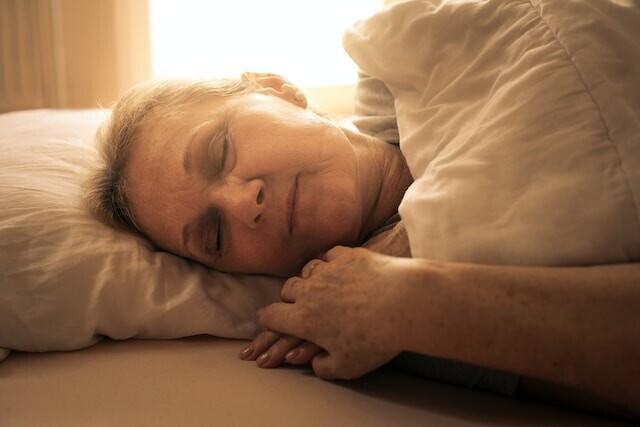
Page 6
Detoxify Your Bedroom: Sleep Your Way to a Healthier Brain


04
FindtheToxins HidinginYour Bedroom


You might not have considered how typical bedroom items could be hazardous to your health. By using this guide, you can learn how toxins can sneak their way in. Take a tour of your bedroom with our help and see for yourself how many potential risks there may be.
Toxicfurnitureandbedding
The materials used to make furniture can be potentially harmful. Furniture contains chemicals known or suspected of causing human harm in various forms such as �re retardants, formaldehyde, glues, and solvents. We’ll go into detail below.

Page 8
Detoxify Your Bedroom: Sleep Your Way to a Healthier Brain
VOCs
Chemicals like benzene, toluene, and formaldehyde are examples of VOC’s or volatile organic compounds. They can be found in many household products including paints, varnishes, air fresheners, and especially carpets. [3]
VOC’s vaporize or off-gas into the air that you breathe seeping inside of your body. Short-term exposure may cause headaches, dizziness, eye and throat irritation. Long-term exposure is more serious and can result in kidney and liver damage, even cancer.[4]

Flameretardants
Numerous studies link �ame retardant chemicals with harm to liver, thyroid, and endocrine system function. The biggest source of exposure is through direct contact with skin and by breathing them in through household dust.[5]
PFAS
These chemicals are known by their initials and stand for per-and poly�uoroalkyl substances are used to make fabric water- and stain-resistant commonly used in carpets and some bedding. These “forever chemicals” don’t break down. They instead accumulate inside of your body potentially causing health problems to thyroid function, immune system, increasing the risk of certain cancers, liver disease and more. [6] [7]
Syntheticfragrances
Look around your home and you’ll discover a plethora of products with synthetic fragrances in shampoos, lotions, dryer sheets, cleaning products, and air fresheners, to name a few. Man-made fragrances are concoctions of chemicals that can be harmful to humans. Phthalates are one example. Known as hormone disruptors, they can have negative effects on the reproductive system, increase cancer risk, and cause with one’s immune and nervous systems. [8] [9]
Page 9 Detoxify
Bedroom: Sleep
Way to a Healthier Brain
Your
Your

Electromagnetic�elds(EMFs)
Although our exposure to EMF’s occurs naturally, never in the history of mankind have humans been exposed to such extremely high unnatural, man-made amounts. Any device you plug in will emit EMF’s and the items that have some of the highest amount include wireless telephones, cell phones, and WiFi routers. The concern is real. The International Agency for Research on Cancer (IARC) operates under the World Health Organization and has classi�ed non-ionizing EMFs in the radiofrequency range as “Group 2B, a possible human carcinogen”. The science is evolving yet recent studies link heart disease, high blood pressure, and altered heart rate variability with EMF exposure in humans. [10] [11]
The blood-brain barrier prevents many toxic substances in the blood from penetrating the brain and eventually causing damage. Insu�cient detoxi�cation leads to an accumulation of beta-amyloids thought to be responsible for Alzheimer’s and dementia. We clear these toxic molecules from our brains while we sleep making our nightly slumber a critical activity in the �ght againsta Alzheimer’s.[12]

Page 10


SolutionsforaBrainHealthyBedroom
06
Theworldistoxic,
butyourbedroomdoesn’thavetobe.
It’s unfortunate that our modern lifestyles are fueled by so many toxic sources. A return to nature is good for your health and even better for your sleep. Here are some tips to create a non-toxic bedroom for your best sleep and ways to bring nature back to bed.
To create a brain-healthy bedroom, it's crucial to start by eliminating all sources of toxins and replacing them. Here are some practical and actionable solutions to consider. Better yet, put them into practice!
Walkbarefootorwearhouseshoesinthebedroom
Pollen-bacteria-dirt-dogpoop-gasoline-humanurine. [13]
This is what you bring into your home on the soles of your shoes. Many cultures prohibit shoes indoors and it’s a good idea. Scienti�c studies have shown that your shoes can be dirtier than a toilet seat. Leaving them off when you’re at home is advisable and especially true for your sleep sanctuary.
Keepyourbedroomcleananddust-free.
The simple act of keeping your bedroom clean and dust-free is a big boost to your health. The dust we breathe, after all, is the major pathway for �ame retardants to get inside of us. If you suffer from allergies, asthma, or sleep apnea then better breathing at night is critical for quality sleep.
Read our eight tips for an allergen-free bedroom
Page 12 Detoxify Your Bedroom: Sleep Your Way to a Healthier Brain

Improvethequalityoftheairyoubreathe.
When you think about air pollution, you probably look outdoors. But have you ever considered how much indoor air pollution there is? Some scientists now consider indoor air quality worse than outdoor air pollution! Indoor air can be more polluted since we trap toxic chemicals inside of our well-insulated homes relying on central air/heat thus spending more time indoors than we do outside, which makes the exposure worse.
Open the window when you can to circulate and diffuse the air. Use an air puri�er with a HEPA and/or activated carbon �lter to clean the air especially if you have concerns about VOC’s or PFAS, or suffer from asthma or allergies. Depending on where you live, use a humidi�er to improve your breathing while you sleep.
NOTE [14]
: Poor indoor air quality is such a widespread health concern that the United States Environmental Protection Agency created, “A Guide to Indoor Air Quality.”

Page 13
Detoxify Your Bedroom: Sleep Your Way to a Healthier Brain

Removeinvisible,odorlessradiationfromyourbedroom.
Electromagnetic pollution can be toxic to humans. Remove all electrical devices from the bedroom and you’re taking a step in the right direction. If you’re particularly sensitive, you’ll �nd that the EMF’s from these devices can rob you from getting good sleep. In this case, you may want to consider shielding your electrical wiring, shutting of the breaker to your bedroom, EMF barrier paint for the walls, or sleeping on a grounding pad. Learn more by reading -
The Dangers of Sleeping with EMFs in Your Bedroom
NOTE [14]
: Poor indoor air quality is such a widespread health concern that the United States Environmental Protection Agency created, “A Guide to Indoor Air Quality” - it’s a must read!
Many solutions to the EMF exposure problem are simple; turn o� electrical devices and keep them away from your head and, even better, out of your bedroom.

Page 14
Detoxify Your Bedroom: Sleep Your Way to a Healthier Brain
Purifyindoorairnaturallywith indoorplants.
NASA has studied the properties of plants to clean air on the space stations. English Ivy was shown to be the best indoor air cleaner while we prefer Snake Plants for the bedroom because they detoxify at night and grow well in dimly lit areas. Here’s a list of you breathe inside of your home. 13 house plants that help purify the air [15]
SyntheticFragrances
Become a more conscious consumer and check the labels of products you use. Instead of plugging in an air freshener using synthetic scents, consider diffusing essential oils. You can add a few drops of lavender, chamomile, or eucalyptus to your pillowcase or diffuser to create a calming and relaxing environment.
Non-ToxicBedding
Consider purchasing non-toxic bedding that's made from organic materials. This will ensure that what’s closest to your skin is a clean and healthy surface. Although organic cotton sheets are popular, you can also opt for bedding made from bamboo, which is naturally antimicrobial and hypoallergenic.

Page 15 Detoxify Your Bedroom: Sleep Your Way to a Healthier Brain
Sleepslantedforbetterbrain detoxi�cation
Inclined sleep with your head a bit higher than your feet not only reduces sinus congestion and improves circulation but also offers many other health bene�ts. People who sleep inclined report less symptoms of of common ailments like acid re�ux (GERD), heartburn, headaches, and even snoring. Learn more about . inclined sleeping
Notpossibletoreplaceyour mattressnow?
Consider replacing your sheets and pillows or adding a mattress topper made from natural materials that acts as a barrier between you and your toxic mattress. Cheap foam and treated foam can be the worst contributor of toxic chemicals that off-gas.
Look for natural wool and organic cotton. Sheep's wool works with the intelligence of nature and not against it. For example, wool �bers can store quite a lot of excess moisture without becoming wet while having a cooling or warming effect, too. Sleeping dry and cozy instead of hot and sweaty sounds isn’t just a good idea, it’s sleep science.
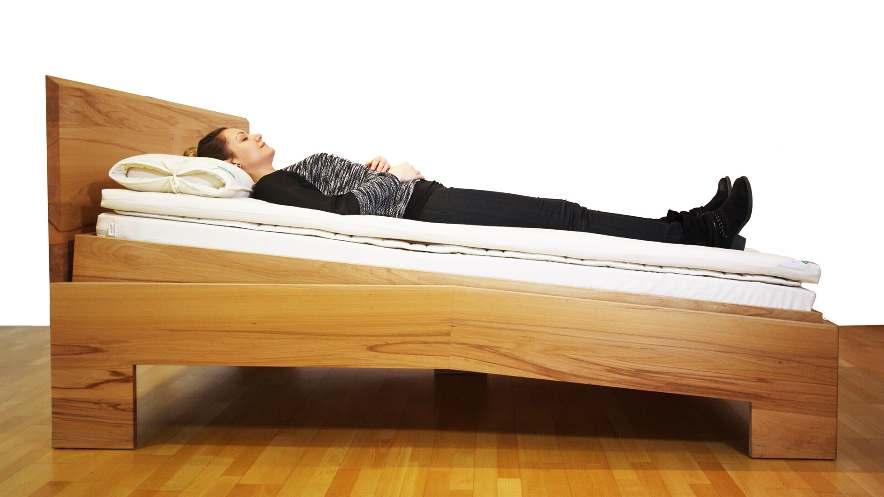
Page 16
Detoxify Your Bedroom: Sleep Your Way to a Healthier Brain
Useanon-toxicmattress.
Most people don’t even think about what’s inside of their mattress. They focus on comfort alone. Yet, the large surface area you cozy up to for hours every night is a big source of potentially harmful toxins. You’ll �nd the following and more undesirable materials inside of most mattresses:
1. Fire retardant chemicals
2. VOC's
3. Synthetic fragrances
4. Formaldehyde
The concoction of chemicals in “memory foam” is even scarier because formulas and ingredients are hidden from consumers via trade secret laws.
According to the Environmental Working Group and their , this is what to look for in the healthiest mattresses.
Healthy Living: Home Guide [16]
No less than % certi�ed organic content
Low-VOC certi�cation
No added chemical �ame retardants
No polyurethane foam
No added fragrances or antimicrobials
No PVC or vinyl
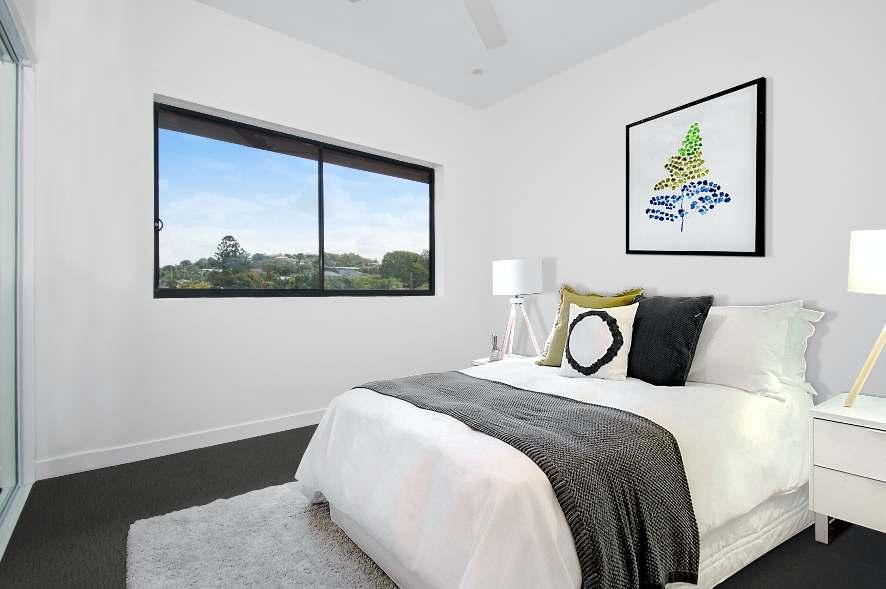
Page 17
Detoxify Your Bedroom: Sleep Your Way to a Healthier Brain
07
Conclusion
Alzheimer's diseasedementia
Creating a brain-healthy bedroom is essential for mitigating toxins, improving sleep quality, and thereby reducing the risk of and . By following the solutions outlined in this guide, you can improve the overall quality of your life and well-being.
Remember to consult reputable sources and scienti�c data such as the citations included in this guide to understand the bene�ts fully and ensure the credibility and effectiveness of your efforts.
Page 18 Detoxify Your Bedroom: Sleep Your Way to a Healthier Brain
SOURCES
1. https://news.harvard.edu/gazette/story/2021/02/5-or-fewerhours-of-sleep-may-increase-risk-of-dementia-in-older-adults/ ↑
2. https://www.nih.gov/news-events/nih-researchmatters/sleep-deprivation-increases-alzheimers-protein ↑
3. https://www.lung.org/clean-air/at-home/indoor-airpollutants/volatile-organic-compounds ↑
4. https://bmcpublichealth.biomedcentral.com/articles/10.118 6/s12889-018-5454-1 ↑
5. https://www.theguardian.com/usnews/2019/may/24/�ame-retardants-everyday-productstoxics-guide ↑
�. https://www.atsdr.cdc.gov/pfas/health-effects/overview.html ↑
7. https://www.ncbi.nlm.nih.gov/pmc/articles/PMC7906952 ↑
�. https://babel.hathitrust.org/cgi/pt?id=mdp.39015043251746 ↑
9. https://www.epa.gov/endocrine-disruption/overviewendocrine-disruption ↑
10. https://www.healthline.com/health/emf#research ↑
11. https://www.ewg.org/research/radiofrequencyelectromagnetic-�elds-may-affect-heart-health-new-ewganalysis-�nds ↑
12. https://www.nih.gov/news-events/news-releases/brain-may�ush-out-toxins-during-sleep ↑
13. https://www.usatoday.com/story/news/2019/07/03/myshoes-dirty-studies-suggest-theyre-covered-fecalbacteria/1637780001/ ↑
14. https://www.epa.gov/indoor-air-quality-iaq/inside-storyguide-indoor-air-quality ↑
15. https://www.naturallivingideas.com/air-purifyinghouseplants/ ↑
1�. https://www.ewg.org/healthyhomeguide/mattresses/ ↑
Page 19 Detoxify
Your Bedroom: Sleep Your Way to a Healthier Brain
Better sleep deserves a better bed.
When your feeling good and staying healthy matter to you, SAMINA is the natural choice for your healthy sleep.
The eco-luxury line provides everything you need for comfort and support in bed. SAMINA patented technologies include grounding, or earthing, pads for sleep and gravity inclined beds.
Learn why SAMINA is the organic brand of choice for healthconscious people when it comes to choosing a nontoxic mattress. Click on SAMINA below to learn more and get a 20% discount on your purchase

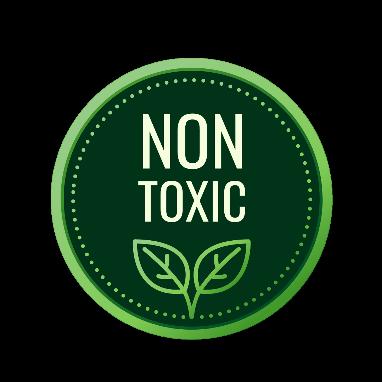
About SAMINA Sleep


















